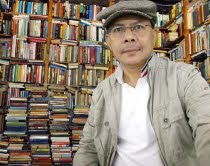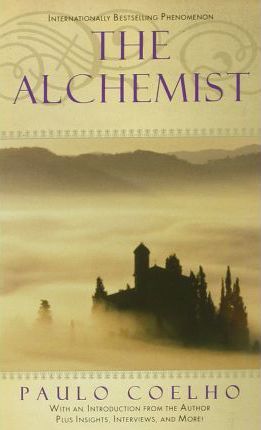MOBILISING
FOR QUALITY EDUCATION FOR ALL
Teks
ucapan Pengerusi UiTM, Tan Sri Dr. Wan Mohd. Zahid bin Mohd. Noordin di ‘7th
Education International Asia-Pacific Regional Conference’ di Federal Hotel, Kuala
Lumpur pada 18 September 2013.
Recently, an eminent Professor from Stanford University,
under whom I had the privilege of studying, sent me a copy of his commencement
address. I went through the speech very carefully as I do not wish to miss out the
gems of wisdom from this eminent scholar.
My eye caught a line from his speech which I would like
to share with you all. He narrated a conversation that he had with a very
bright Stanford undergraduate who came to see him for advice on what to do after
she graduated. His answer, in my view,
was precise and right on. He said to the undergraduate: "Look, you are
very smart. Do something really difficult. Go into education".
If you examined education closely you will agree with
the good professor that indeed education is not an easy area to manage, unless
of course one erroneously simplifies what is fundamentally a very difficult and
challenging enterprise.
The reason why education is a difficult enterprise is
because it is not, to begin with, an island unto itself, or, in today's hip
parlance it is not a stand-alone entity. Education is intricately linked with a
variety of social forces and settings. And therefore you cannot simply address
education like mobilizing education for all without thinking about other
aspects that impinge on education like ethnicity, demography, social structure,
values, traditions, and mores, legal issues, politics and what have you. And
in every society, Malaysia not excluded, it is a well known practice to heap
the failure of society on to the doorstep of education to resolve.
This beast of burden that goes by the name of education
is expected to solve a whole host of wide-ranging problems, from obesity to
unemployment, from street crimes to domestic quarrels and divorces, from
habitual traffic offenders like beating the red light to spitting on the street,
and what have you. Indeed, these are by no means easy stuffs to get a handle on.
As the good professor says, to cope with this kind of interaction is what makes
education a mighty difficult area to manage.
The problems and issues besetting education are such
that it summons the best and the brightest to join its ranks and make the
profession a noble calling. In this regard the Minister of Education cum the
Deputy-PM is spot on when he enunciated in the blueprint of education, among
other things, that the best and brightest should be recruited into the
education service. Indeed we need the best minds to address the many difficult
issues confronting education.
Among the many pressing issues confronting education,
in my view, is one that has been a continuous source of debate among
educationists and non educationists alike. The issue is a fundamental one,
namely the purpose of education. This matter brings forth the tension between
two opposing perspectives which are poles apart: “is education about building
the capacity of the memory or building the capacity of the mind”. Most, in principle, would say it is the
latter, but in practice they end up doing the former. The inclination is to dish
out books upon books to the students to commit the contents to memory.
Examination is administered so that students may regurgitate what they have
memorised. Every year we hear students displaying impressive strings of As
which is nothing more than a display of
how much they know and can recall. This approach is perhaps predicated on the
mistaken assumption that the capacity to recall correlates with the capacity of
the mind. If indeed this was the case
how come we are told time and again that our students cannot think, and cannot
articulate their ideas coherently and analytically?
In this regard educationists would do well to invest a
lot of their intellectual energies into thinking about building the capacity of
the mind, that is, the skills of thinking, in the educative process. “Mobilizing
education for all” usually means facilitating access to education. Pardon me
for seeing it this way since you have not qualified what you really mean by such
a theme.
As such this is simply a physical initiative. And of
course it lends itself to empirical measurement rather easily and you can make
much fanciful statistical analysis about access.
It is to be stated that “quality of education” is not advanced
by simply providing access to education. While access to education is necessary,
it does not mean the capacity of the mind is enhanced. The educative process
may just be devoted to building the memory capacity of the students. Or worse
the educative process may even be oppressive. I will come back to explain what
I mean by oppression a little later.
I make bold to state that the teaching of thinking is
the be all and end all of education. As
educationists a lot of effort should be put into thinking about this matter.
Thinking, in essence, is liberation. It’s
like the old song “Horse and carriage, Love and Marriage, one cannot go without
the other”. So are thinking and liberation, the two are consequences of each
other. You cannot advocate thinking if you impose restrictions, or worse still,
forbid thinking. Thus you do not want to
herd children into the classroom to achieve the goal of “Mobilizing Education
For All” without giving thought to the consequences of the classroom process
which, in most cases, are “oppressive”. I shall explain why.
Paulo Freire, the eminent and the consummate thinker,
is spot on when he advocated for the liberation of the mind in the educative
process in his landmark book “Pedagogy of the Oppressed”. He proposed a powerful
pedagogical style to ensure (may I suggest guarantee) that the teacher does not
oppress his or her charges in the educative process. He said that the general
tendency is to oppress even if oppression is not intended. Saying “do you
understand?” is oppressive, in Freire’s idiom.
Education is about the struggle for freedom against the
colonization of the mind, no matter from whatever sources friendly or
otherwise. Freire says that “ Freedom has always been dynamic and rooted in the
historical process by which the oppressed struggle unremittingly to “extroject”
the slave consciousness which oppressors have introjected into the deepest
recesses of their being”.
Freire goes on to state that oppression occurs in the
educative process involving the educator vis-à-vis educate. Educators all too
often treat educatees as passive recipients of knowledge. For Freire education
is the “practice of liberty because it frees the educator no less than the
educatee from the twin thralldom of silence and monologue. Both partners are liberated
as they begin to learn, the one to know self as a being of worth –
notwithstanding the stigma of illiteracy, poverty, or technological ignorance –
and the other as capable of dialogue in spite of the strait jacket imposed by
the role of the educator as one who knows. The mark of a true educator is not
the skill in persuasion – which is but an insidious form of propaganda—but the
ability to dialogue with educatees in a mode of reciprocity”. Educators and
teachers and do gooders, please take note.
I believe that Freire has the strongest concept of
freedom and the educative process. He counsels great caution when taking unexamined
approach for fear that good intentions can lead to oppressive consequences. This
is because he fears that behind the practice of pedagogy there is an
unconscious implicit ideology of paternalism, social control, and non
reciprocity between the educator and the educatee. Because of his strong conception of liberation
in the educative process, Freire refuses to be cast in the role of a
charismatic guru dispensing wisdom to willing disciples. Unless one can
criticize him , one cannot exchange thoughts with him. He is ever prompt to
“decree his own death as an educator”. To
me this is the hallmark of a true educator who finds complete fulfillment as an
educator when the educatee that he has liberated can demolish him and regard
him as their equal. This is indeed the true north of education. The goal of
liberation of thought is achieved when the thought process of the educatee is
fully liberated.
I have taken this approach in my speech so as to be in sync
with the new, perhaps if I may call it as such, radical development in the
education scene in Malaysia in the wake of the recent presentation of the
Education Blueprint. Among the many educational goodies contained in the
blueprint is the aspect on thinking. In this regard the Ministry of education
is hot on HOTS. HOTS stand for Higher Order Thinking Skills.
In approaching the HOTS initiative educators are well
advised to approach the matter with circumspect, lest the true virtues of HOTS
would be lost. In this regard may I recommend Malaysian educators, if they had
not already done so, to read the two splendid books by Paulo Freire, namely, “Pedagogy of The Oppressed” and “Education
for Critical Consciousness”.
I would like to close my speech with one anecdote—a
true one. At a seminar held for a group of academics I was invited to give a
talk on THINKING. I recall preparing 10 slides for the occasion but the first
slide is the most important. I said I would present the rest of the slides
provided we got over the first one. Well,
we were stuck at the first slide until the end of the session!!
What was that first slide about? It reads “TEACH
NOTHING ELSE BUT THINKING”. I can still
recall the lecture hall went silent for nearly a minute. I paced up and down,
not saying anything. I was waiting for a reaction. The silence was deafening. Finally
a participant tentatively raised his hand and said, "Surely you are not
serious about this idea". I said I was dead serious about the proposition.
This remark triggered muted murmurs which later grew into high pitch.
A barrage of questions then followed. "If we teach
thinking, what about the subject matter like engineering, economic, accountancy".
Another agitated participant stood up and tried a Kissinger type of negotiation,
"OK, we recognize thinking is important, how about 30% thinking, 70%
subject matter". The discussion then took on a bargaining mode, for which
Malaysians are famous, "How about 40% thinking". Then another, "How
about 50:50 that’s my final offer". To all these I said, "No!
Thinking must be 100%. It must be total".
The lecture ended in a deadlock!! It was the first time in my career that I got
to present only one slide!! As I was
packing to leave the seminar room, a participant asked me, "Please tell us
why you propose “teach thinking only". To which I replied, "That’s
for you to think".
No one was
pleased with that remark. There was a saving grace, though. A week after the
lecture one of the participants posted a blog on the seminar. Upon reading the
blog I felt a measure of vindication.
If you want to know about the matter read the blog. Well,
as teachers what do you think? TEACH
NOTHING ELSE BUT THINKING.





